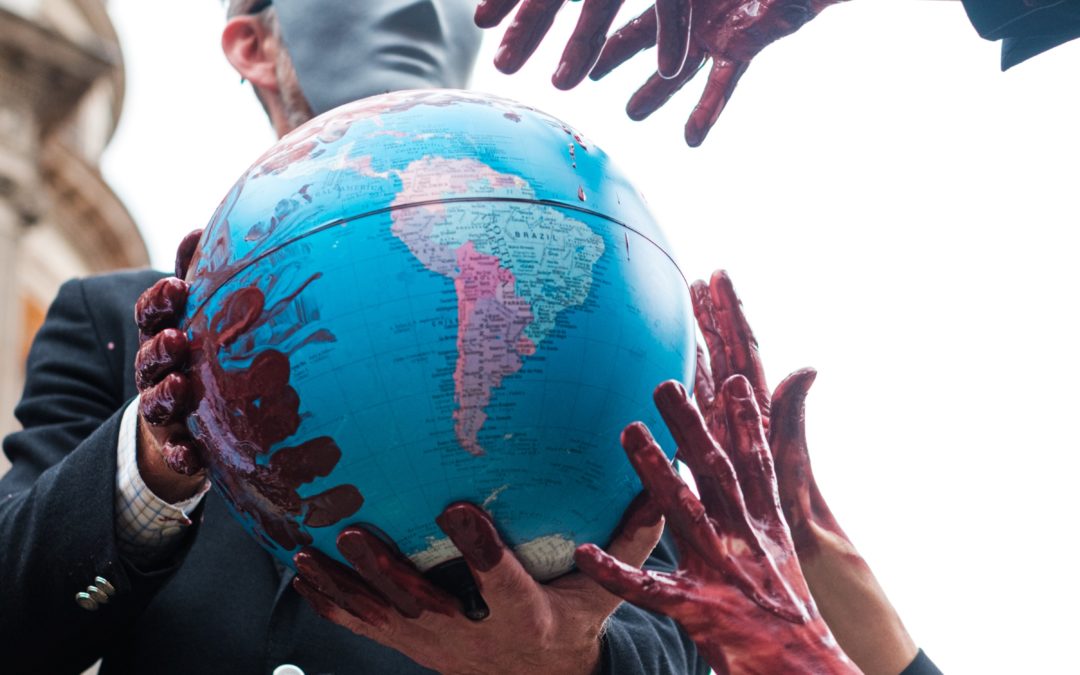Between October 31 and November 12, 2021, more than 200 heads of states gathered in Glasgow, Scotland, to attend a conference that was happening a year too late. Too late in the sense that the UN Climate Change Conference COP 26 was postponed due to the Corona crisis. But also in the sense that none of the countries involved could have afforded this delay. At stake was the preservation of the 1.5 degrees target, as it was concluded in the Paris Agreement, which entered into force on 04 November 2016.
Priority issues were directed at the effective reduction of greenhouse gas emissions by the G7 and G20 countries in the coming years, and securing international climate finance and support for the Global South in implementing their much-needed climate adaptation measures.
After two weeks of negotiations, all that remains is a bitter aftertaste. Empty promises, confusing articulations of action measures, hopelessness, indignation, despair. At least for the countries most directly affected by climate change.
Article, over article and oh there…. another one. „We must act now“, „Change is now“, „We can save the planet“. My stomach is churning. What is all this? Seriously, we don’t need more hypocritical videos of drones flying over highlands and crop fields, while random strangers or Ursula von der Leyen standing in front of a green screen state that: “We need to act, and that time has come now” (https://audiovisual.ec.europa.eu/en/video/I-212314?&lg=INT).
No sh*** (excuse the expression). Floods are real, people are starving to death, crops are failing, and this is far from a newly observed phenomenon! All the facts discussed at most conferences (whether international, national, scientific or just at a local pub, yes, it’s that bad) have been known for more than thirty years. How can it be that we still do not properly address this issue and act as if we really care about the future of the generations to come?
My point is not to naively undermine the difficulty of international negotiations or the problems that arise from economic differences, social and cultural aspects etc. between states. We have Greta Thunberg for that (just kidding), but it is my intention to infuse this article with a certain anger that I know is not mine alone.
In the last few remaining hours of the negotiations, huddles of the delegations started building up. A conclusion was about to be announced, a draft everyone accepted. This felt like a win.
Suddenly one of the Chinese delegates approached the podium and demanded for a word to be changed in the text. Silence. Everyone turning their heads. Now delegates of the UK, China, USA, India, and the EU left the room, so the largest emitters of carbon dioxide sat separated from everyone else. China threatened to bring the entire deal down and with that successfully pushed for a last-minute change to the agreements that resulted in a slow drift away (phase-down) from coal and emissions instead of the outright phase-out that was sought.
As one Bangladeshi congressman commented on camera, „This is a death sentence for the poorest people on this planet.“ Other nations, as for example the Maldives, expressed their disappointment of the outcome of COP26. „Due to the urgency and only possibility of survival of a majority of our population, we accept the result, we have no choice,“ expressed the spokeswoman of the country helplessly. Even Alok Sharma, president of COP26, apologized for the outcome in his closing statement at the conference. Nevertheless, he pointed out the urgency of reaching an agreement in this negotiation, even if the outcome could have been more promising.
and I am not surprised, but disappointed and angry. I guess I am simply tired of the continuing failures of these negotiations. In an online stream by Yanis Varoufakis, which I was following recently, Noam Chomsky, one of the leading intellectual figures of the US, commented on the current events as following: “The important part of what was happening at COP26, was on the streets […], what they are doing on the streets of Glasgow is the hope of the future […]” and concluded that: “[…] If Europe continues its craven subordination to U.S. power, there will be no counterforce to this, and Europe doesn’t have to do it. Europe has the resources, the capacity, to move in an independent way […], if it doesn’t take that role it will accelerate the process of decline” (Chomsky, 2021).
On the contrary, Boris Johnson, among other delegates from first world countries, called COP26 a successful declaration for the future of green politics. This raises questions for me that I aim to answer in my next article, which will take a closer look at the EU climate politics and recent events in general.
For now, I will leave you with a slightly more humorous take on the topic, yet with a serious message: https://www.youtube.com/watch?v=3DOcQRl9ASc

